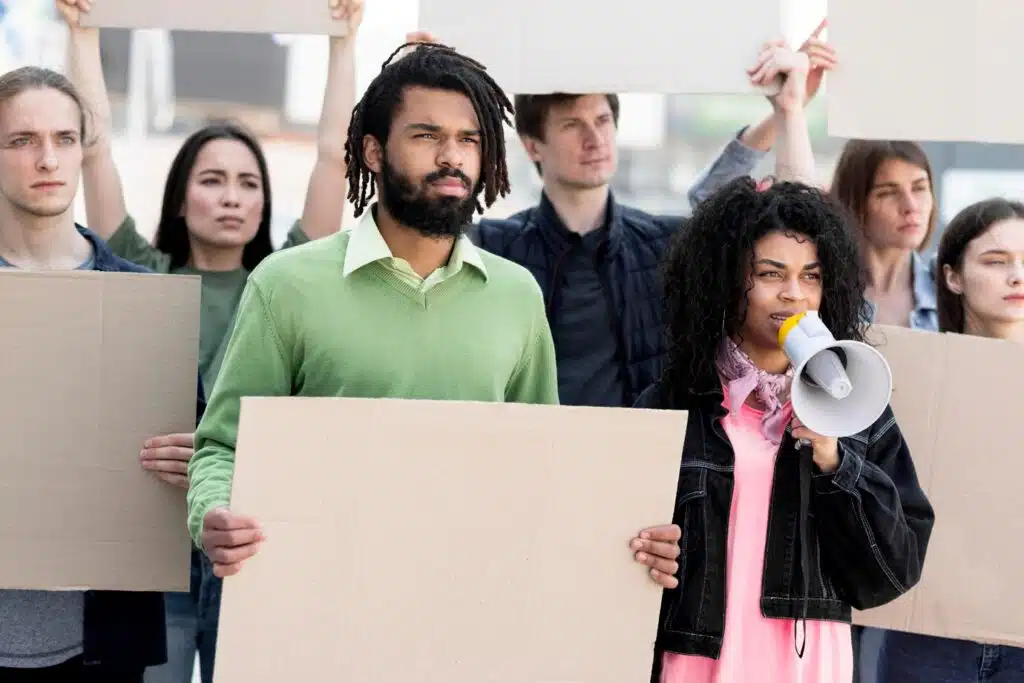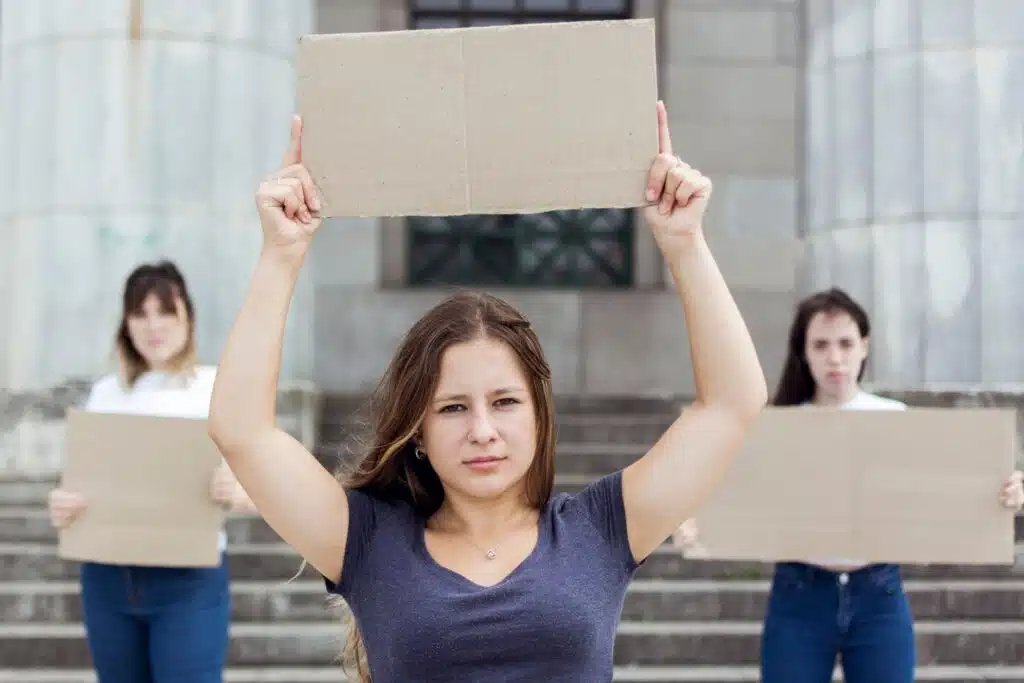Human rights are the fundamental rights and freedoms entitled to every person, regardless of nationality, ethnicity, language, or religion. These rights are enshrined in various international legal instruments, which form the backbone of international human rights law. International human rights law (IHRL) provides a framework to safeguard these rights and ensure justice for individuals whose fundamental freedoms are threatened. While the protection of human rights is a universal goal, the question arises: how does international human rights law protect global citizens?
International human rights law operates across borders and legal systems, establishing standards for the protection of human rights and creating mechanisms for enforcement. It serves to address violations of rights such as freedom from torture, discrimination, and unlawful imprisonment. In this article, we will explore the key instruments of international human rights law, the mechanisms for its enforcement, and how it helps protect citizens worldwide.
Key Takeaway
International human rights law is an essential tool for safeguarding the dignity, freedom, and equality of all individuals. By setting global standards for human rights, ensuring accountability for violators, and providing legal remedies for victims, IHRL protects global citizens from injustice and fosters a more equitable and peaceful world. The ongoing development and enforcement of these laws are critical in advancing human rights for everyone, everywhere.
Also Read : What Does A Mediation Lawyer Do And How Can They Help You?
Key Instruments of International Human Rights Law
The Universal Declaration of Human Rights (UDHR)
Adopted by the United Nations General Assembly in 1948, the Universal Declaration of Human Rights (UDHR) is one of the most important milestones in the development of international human rights law. Though not legally binding, the UDHR sets forth fundamental human rights that are universally recognized and serves as a guiding framework for all subsequent human rights treaties. It covers civil, political, economic, social, and cultural rights, including the right to life, freedom from slavery, the right to work, and the right to education.
International Covenants and Treaties
Several binding international agreements have been adopted to codify the principles outlined in the UDHR. These include:
- International Covenant on Civil and Political Rights (ICCPR): Focuses on ensuring civil and political freedoms such as the right to life, freedom of expression, and protection from torture or arbitrary detention.
- International Covenant on Economic, Social, and Cultural Rights (ICESCR): Addresses economic, social, and cultural rights like the right to education, health, and an adequate standard of living.
- Convention on the Elimination of All Forms of Racial Discrimination (CERD): Aims to eliminate racial discrimination and ensure the equal rights of all individuals regardless of race.
- Convention on the Elimination of All Forms of Discrimination Against Women (CEDAW): Focuses on eliminating gender-based discrimination and promoting gender equality.
- Convention Against Torture and Other Cruel, Inhuman, or Degrading Treatment or Punishment (CAT): Prohibits the use of torture and other forms of cruel, inhuman, or degrading treatment.
Also Read : How Can An Immigration Lawyer Help With Visa Applications?
Regional Human Rights Conventions

In addition to global instruments, regional human rights systems also play a critical role in protecting individuals. Key regional human rights conventions include:
- European Convention on Human Rights (ECHR): Governs the protection of human rights for the member states of the Council of Europe. It includes provisions for the right to fair trials, freedom of expression, and protection from torture.
- African Charter on Human and Peoples’ Rights (ACHPR): Provides legal protections for both individuals and peoples within the African continent.
- American Convention on Human Rights (ACHR): Governs human rights protections in the Americas and includes provisions for the right to life, personal liberty, and due process.
International Criminal Law and the Rome Statute
The Rome Statute established the International Criminal Court (ICC), which prosecutes individuals for international crimes such as genocide, war crimes, and crimes against humanity. The ICC provides a crucial mechanism for holding perpetrators of the most serious violations of human rights accountable, offering a deterrent to violations while ensuring justice for victims.
Also Read : What Are The Common Defenses In Tort Law And Negligence Cases?
Mechanisms for Enforcing International Human Rights Law
While international human rights law sets forth standards and norms, the challenge lies in ensuring that states and governments comply with these standards. To address this issue, several mechanisms exist to promote accountability, oversight, and redress for human rights violations:
The United Nations Human Rights Council (UNHRC)
The UNHRC is responsible for monitoring and promoting human rights worldwide. It reviews the human rights records of all UN member states through the Universal Periodic Review (UPR) mechanism, which is a process where countries’ human rights situations are examined regularly. Additionally, the UNHRC handles complaints from individuals and provides guidance to governments on how to improve human rights protection.
Treaty Bodies
The United Nations has created specialized treaty bodies for each of the major human rights treaties. These bodies, such as the Human Rights Committee (for the ICCPR), the Committee on Economic, Social and Cultural Rights (for the ICESCR), and the Committee on the Elimination of Discrimination Against Women (for CEDAW), oversee the implementation of treaty obligations by state parties. These bodies review reports submitted by governments and issue recommendations or decisions regarding the protection of human rights.
The International Court of Justice (ICJ)

The International Court of Justice is the principal judicial body of the United Nations. It settles legal disputes between states and provides advisory opinions on international legal questions, including human rights issues. The ICJ ensures that states comply with their international legal obligations, including human rights treaties.
Non-Governmental Organizations (NGOs) and Civil Society
NGOs play a vital role in the protection and promotion of human rights by advocating for individuals and groups who are at risk of rights violations. Organizations like Amnesty International, Human Rights Watch, and the International Federation for Human Rights work to raise awareness, document violations, and pressure governments to comply with human rights standards.
The International Criminal Court (ICC)
As mentioned earlier, the International Criminal Court (ICC) is a key player in holding individuals accountable for serious human rights violations. By prosecuting war criminals, dictators, and others responsible for atrocities, the ICC works toward ensuring justice for victims and preventing future violations.
Regional Human Rights Courts
Regional human rights courts, such as the European Court of Human Rights (ECHR), the Inter-American Court of Human Rights, and the African Court on Human and Peoples’ Rights, provide individuals with the opportunity to seek redress for violations of human rights. These courts issue binding rulings against governments that violate the rights of citizens, providing a forum for justice at the regional level.
Also Read : What Are the Key Principles of Securities Law?
How International Human Rights Law Protects Global Citizens
International human rights law serves to protect individuals in various ways, ensuring that states respect, protect, and fulfill the human rights of their citizens. Here’s how it works:
Universal Protection
International human rights law applies universally to all individuals, regardless of nationality or citizenship. It ensures that every person is entitled to the same set of fundamental rights, regardless of where they live. The Universal Declaration of Human Rights (UDHR), for example, affirms that everyone is entitled to human rights without discrimination, providing a universal standard that all nations are encouraged to adopt.
Protection Against State Abuse
States often hold significant power over the lives of their citizens, and in many cases, governments are the primary perpetrators of human rights violations. International human rights law seeks to protect individuals from state abuse, including torture, arbitrary detention, and unlawful execution. The Convention Against Torture (CAT) and the International Covenant on Civil and Political Rights (ICCPR) provide specific protections against abuses by state actors.
Also Read : What Are The Key Principles Of Education Law?
Rights of Marginalized Groups

International human rights law also protects the rights of marginalized and vulnerable groups, including women, children, racial minorities, refugees, and indigenous peoples. Treaties like the Convention on the Elimination of Racial Discrimination (CERD) and the Convention on the Rights of the Child (CRC) ensure that these groups have access to the same legal protections as other individuals and that their unique needs are addressed.
Access to Remedies and Accountability
International human rights law ensures that individuals whose rights have been violated have access to remedies, whether through national courts or international mechanisms. The International Criminal Court (ICC) holds individuals accountable for crimes such as genocide and war crimes, while regional courts like the European Court of Human Rights offer victims the chance to seek justice when national legal systems fail to protect them.
Promotion of Global Justice and Peace
By establishing common norms and values, international human rights law contributes to global peace and stability. Protecting human rights is essential for the promotion of peace, democracy, and security worldwide. When governments respect the rights of their citizens, they foster environments of peace, tolerance, and cooperation.
Also Read : What Are The Essential Acts Every Law Student Should Be Familiar With?
Conclusion
International human rights law provides a vital framework for protecting the fundamental rights and freedoms of individuals across the globe. It ensures universal protection against abuses, fosters justice for marginalized groups, and holds governments accountable for violations. While challenges remain in enforcement and compliance, international mechanisms such as the United Nations, international courts, and human rights NGOs continue to play a critical role in upholding human dignity worldwide.
FAQs
What is international human rights law?
- International human rights law refers to a set of legal norms, treaties, and frameworks designed to protect and promote the fundamental rights and freedoms of all individuals, regardless of nationality, race, religion, or gender.
How are human rights violations addressed?
- Human rights violations can be addressed through national courts, regional human rights courts, international bodies such as the UN Human Rights Council, or by international organizations like the International Criminal Court (ICC).
What is the role of the Universal Declaration of Human Rights (UDHR)?
- The UDHR sets forth a common standard for the protection of human rights and serves as the foundational document for international human rights law, although it is not legally binding.
What are the main human rights treaties?
- Some of the key treaties include the International Covenant on Civil and Political Rights (ICCPR), the International Covenant on Economic, Social, and Cultural Rights (ICESCR), and the Convention Against Torture (CAT).
What is the International Criminal Court (ICC)?
- The ICC is an international tribunal that prosecutes individuals for crimes such as genocide, war crimes, and crimes against humanity. It serves as a crucial mechanism for ensuring accountability and justice for serious human rights violations.
What role do NGOs play in protecting human rights?
- NGOs play a vital role in advocating for human rights, documenting violations, raising awareness, and pressuring governments and international bodies to take action.
How does international human rights law protect refugees?
- International human rights law protects refugees through instruments like the 1951 Refugee Convention, which guarantees the right to asylum and protection against deportation to countries where they may face persecution.




